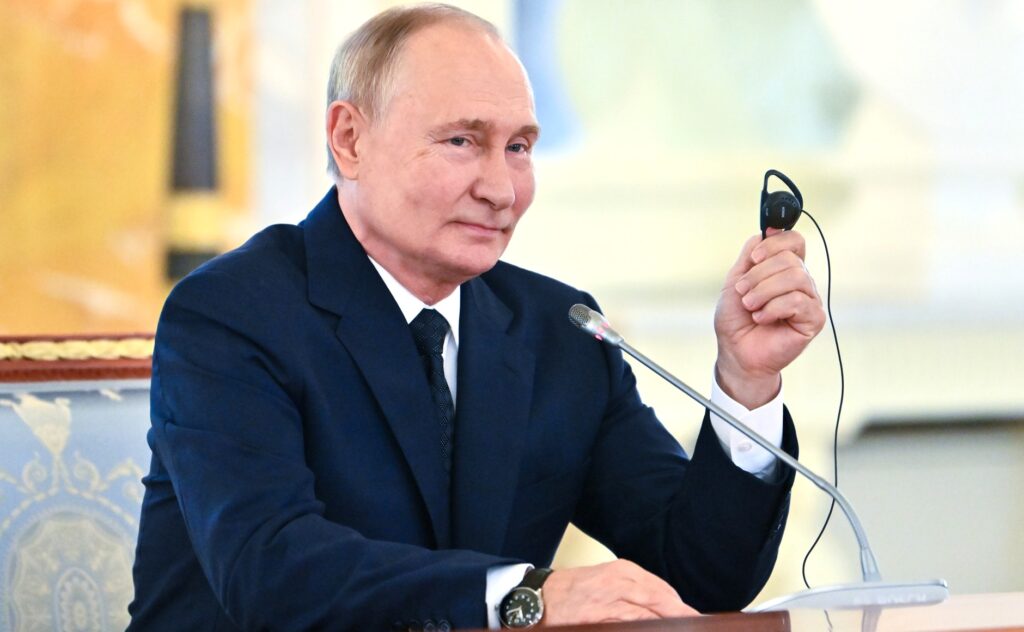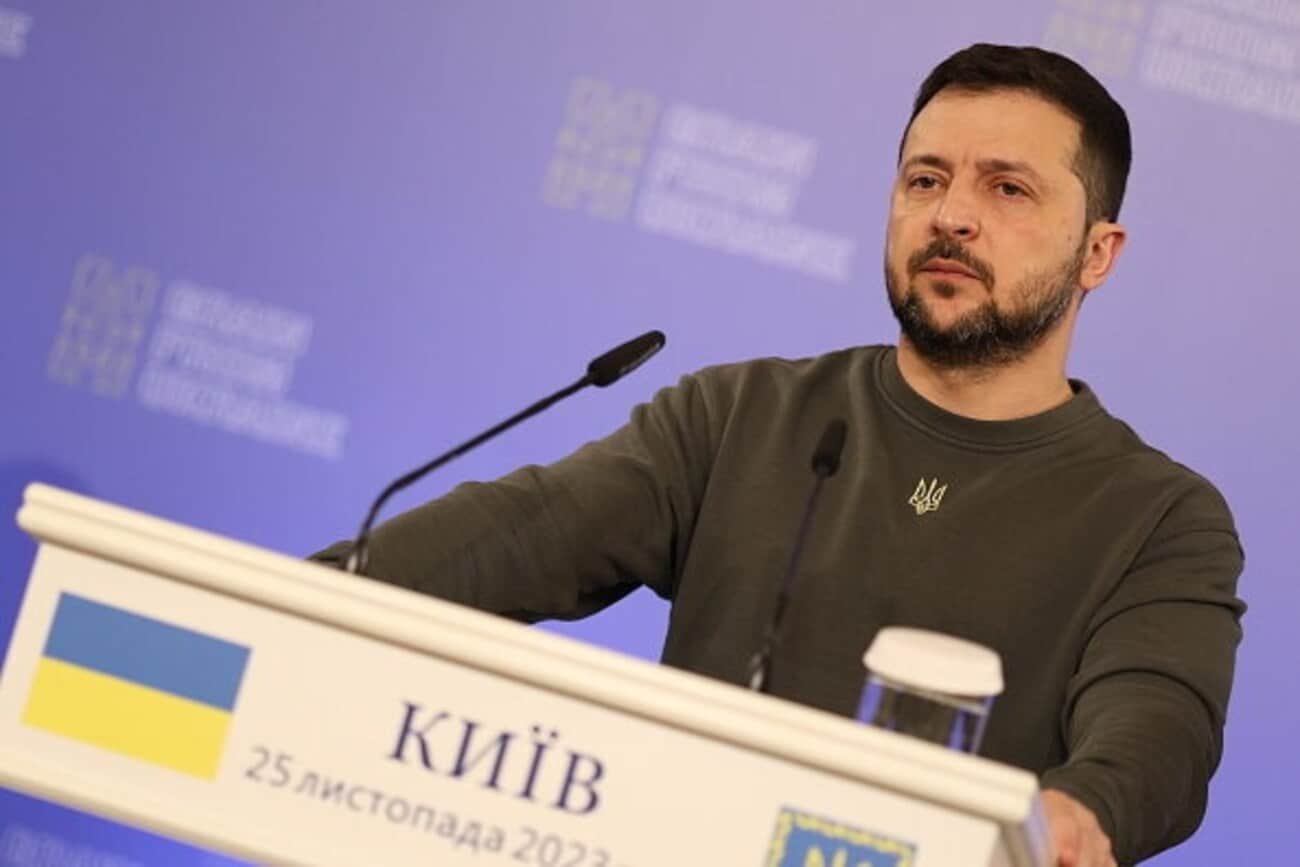Putin threatens to strike “decision-making centers in Kyiv” with high-precision weapon Oreshnik
Putin claims Russia has developed a missile system with destructive power near-equivalent to nuclear weapons.


Russian President Vladimir Putin has escalated rhetoric about potential military strikes on Ukraine, claiming Russia is preparing to use the new Oreshnik missile system against “decision-making centers” in Kyiv.
The statement came a day after Russia deployed a massive missile and drone attack on Ukraine, deplyoing 90 missiles and 100 drones. Accoding to Putin, these strikes took place “in response to the attacks on Russian territory by American ATACMS missiles.”
“As I have said many times, there will always be a response from our side,” Putin added.
Putin said that the Ministry of Defense and General Staff are selecting targets in Ukraine, which could include military facilities, defense industry enterprises, or “decision-making centers” in Kyiv. Asked whether the military or political decision-making centers in Kiev would be hit, Putin responded with the anecdote that anything is possible during the day.
According to Russian media, Putin said that damage from the Oreshnik is “very serious, hitting objects at a depth of 3-4 fortified floors down.”
He emphasized the system’s precision, claiming it is not a weapon of mass destruction but a “high-precision” weapon.
The Russian leader boasted about the weapon’s destructive potential, claiming that anything within the explosion’s epicenter would be “divided into elementary particles” and essentially “turn to dust.”
Putin asserted that a massive Oreshnik strike could have an impact comparable to nuclear weapon use.
Russia has already produced several Oreshnik missile systems ready for deployment. Putin claimed Russia is manufacturing “ten times more long-range missiles than all NATO countries combined” and that Russian hypersonic complexes are “unparalleled in the world.”
This declaration follows recent missile attacks on Ukraine, including a strike on Dnipro on 21 November using what Ukrainian and US sources identified as a ballistic missile potentially derived from the RS-26 Rubezh intercontinental ballistic missile.
The head of Ukraine’s military intelligence, Kyrylo Budanov, previously said that Oreshnik is merely a research project codename, with Russia reportedly producing two experimental samples as of October 2024.
Russian massive attack the night before the statement
The Ukrainian Air Force reported on the morning of 28 November a massive defense operation against a large-scale Russian missile and drone attack overnight. According to the report, the attack involved a total of 188 aerial weapons, launched from multiple regions in Russia. Ukrainian radio-technical troops detected and tracked the following air attack means: 3 S-300 anti-aircraft guided missiles; 57 Kh-101 cruise missiles from Tu-95MS strategic bombers; 28 Kalibr cruise missiles; 3 guided aviation missiles Kh-59/69; 97 attack drones, including Shahed-type and unidentified unmanned aerial vehicles.
Some 62 Russian drones were “locationally lost” during the engagement, i.e. crashed.
The Air Force’s figures suggest that all three S-300 missiles, 9 Kh-101/Kalibr missiles, and zero drones might have reached their targets.
The primary objective of this missile and drone strike was to target Ukraine’s energy infrastructure in Lviv, Lutsk, Rivne, Ivano-Frankivsk oblasts.
Ukraine’s power grid operator Ukrenergo reported emergency power cuts in multiple oblasts during the attack. At least one civilian woman was injured by the Russian strikes.
Read also:
- NATO, Ukraine convene emergency talks after Russian intermediate-range ballistic missile strike
- Patriot systems not designed for interception of Russian intermediate-range missiles, but Ukraine may try, expert says
- Defense Intelligence of Ukraine reveals details of ballistic missile used by Russia on Dnipro
You could close this page. Or you could join our community and help us produce more materials like this.
We keep our reporting open and accessible to everyone because we believe in the power of free information. This is why our small, cost-effective team depends on the support of readers like you to bring deliver timely news, quality analysis, and on-the-ground reports about Russia's war against Ukraine and Ukraine's struggle to build a democratic society.
A little bit goes a long way: for as little as the cost of one cup of coffee a month, you can help build bridges between Ukraine and the rest of the world, plus become a co-creator and vote for topics we should cover next. Become a patron or see other ways to support.



